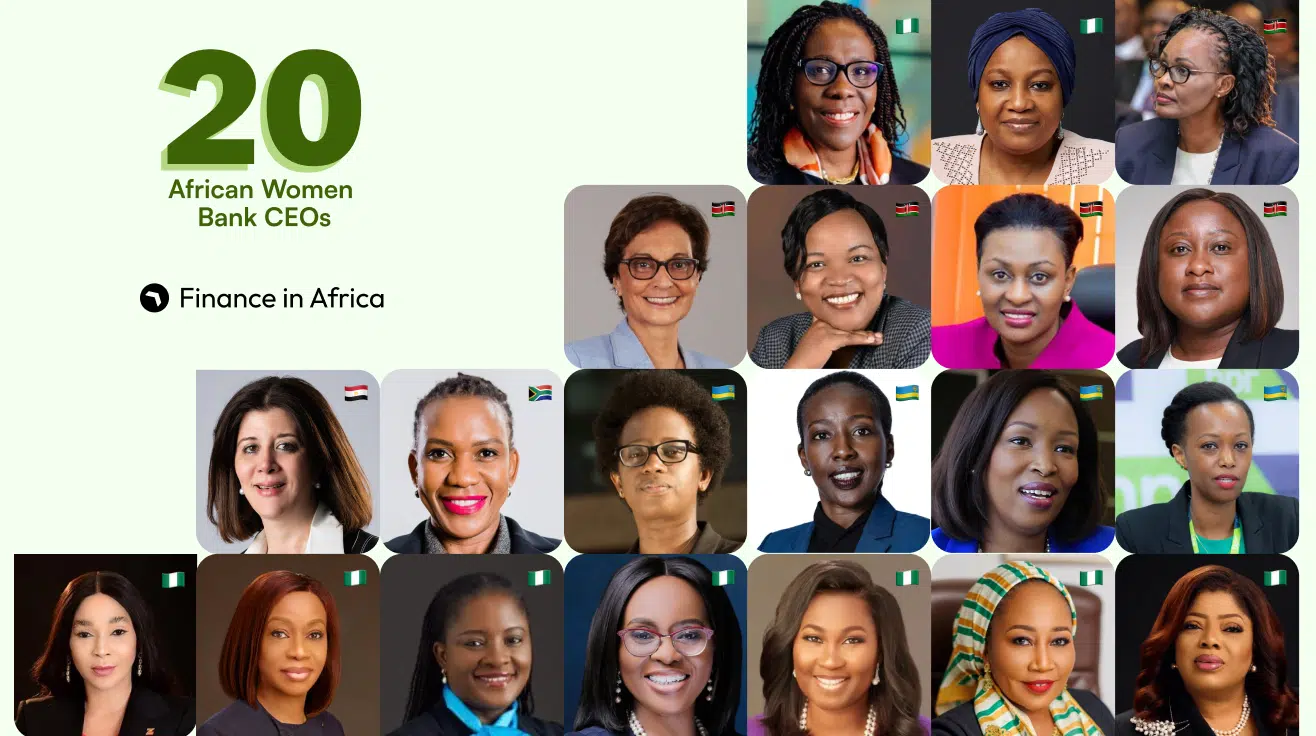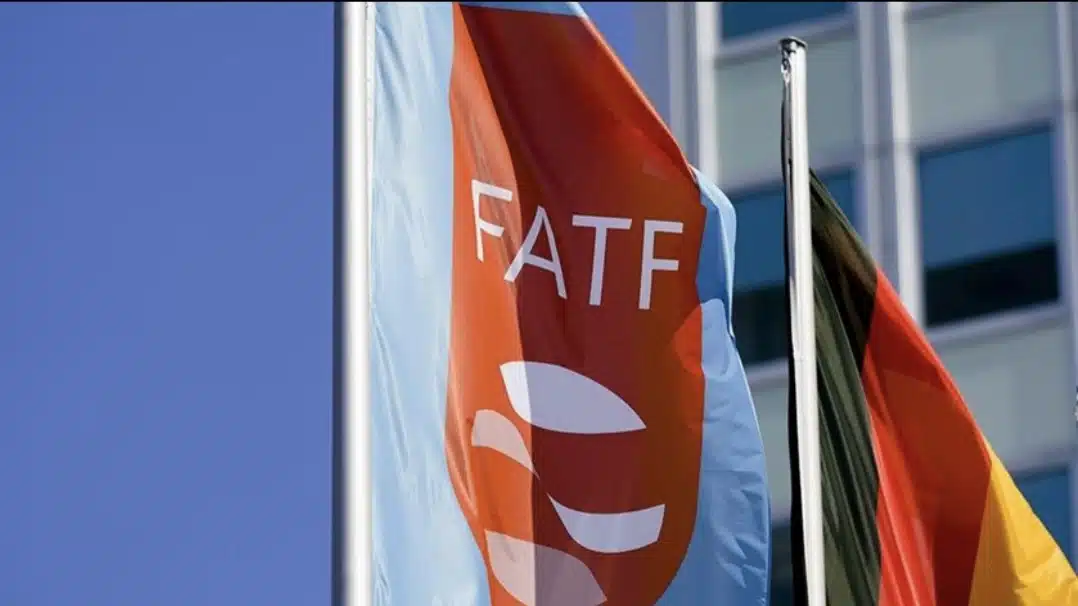From Lagos to Kigali, women are steadily reshaping Africa’s financial landscape, leading some of the continent’s largest and most influential banks.
According to an analysis by Finance in Africa, Nigeria, the continent’s most populous nation, stands out with nine women at the top of major institutions, including Adaora Umeoji of Zenith Bank, Nneka Onyeali-Ikpe of Fidelity Bank, and Yemisi Edun of First City Monument Bank (FCMB).
In Kenya, leaders such as Annastacia Kimtai of KCB Bank Kenya and Nasim Devji of Diamond Trust Bank are redefining what leadership in East Africa’s banking industry looks like. South Africa’s FirstRand, Egypt’s Kuwait Finance House, and Rwanda’s Bank of Kigali also count women at the helm, signaling a broader shift towards gender diversity in African boardrooms.
In economic participation and opportunity, sub-Saharan Africa (SSA) ranks fifth, with a score of 67.5%, marking a 4.8 percentage-point improvement since 2006, according to the latest Global Gender Gap report by the World Economic Forum (WEF).
Further findings show that conversation about gender equality in Nigeria’s corporate space has long been dominated by the banking sector, where women have made some of the most visible gains.
From just one female bank CEO in 2019, the number rose to 11 by early 2024. Today, that figure has slipped to 9. While the change may look minor, it comes at a time when the report highlights both progress and fragility in Nigeria’s gender equality story.
Nigeria’s ranking in global gender gap index
Nigeria ranks 124th out of 148 countries in the 2025 Global Gender Gap Index, up from 125th in the previous ranking and six places from the 2023 index. The data reveals mixed outcomes across the four dimensions of gender parity tracked by the WEF:
- Economic participation and opportunity improved. Female labour-force participation reached 95.6%, up from 89.9%, while income parity rose from 50.1% to 60.4%. These are Nigeria’s strongest gains in years, suggesting women are entering and remaining in the workforce at unprecedented levels.
- Political empowerment deteriorated drastically. The number of women in ministerial roles declined from 17.6% to 8.8% bringing down the overall score of Nigeria.
- Inequality in educational attainment increased. Male literacy improved to 73.7% and female literacy remained at 53.3, cementing the obstacles to equality in the long run.
- Health and survival also declined, and while no actual data figures were provided, it was generally affirmed that the healthy life expectancy increased more amongst men than women.
The report underscores a paradox: while more women are working and earning, their representation in decision-making remains inconsistent.
The gender benchmark in Nigeria’s banking sector
The banking industry has become a testing ground for female leadership in Nigeria. With nine female CEOs currently heading major institutions, women make up about 35% of bank leadership, a figure that outpaces many other sectors.
The female Nigerian bank CEOs are relatively new appointments, with a significant number of them happening in the last five years, which have thus far disrupted the long-held male financial leadership in Nigeria.
However, the drop from 11 to nine CEOs raises questions about whether these gains are sustainable.
The reduction components
Bolaji Agbede
In February 2024, Access Holdings appointed Bolaji Agbede as Acting Group CEO following the sudden death of Herbert Wigwe. With nearly 30 years of Human Resource and business support experience, she was the firm’s most senior executive, and her appointment, part of a succession plan, briefly raised the number of female Nigerian bank CEOs to 11.
The role, however, was explicitly temporary and subject to approval by the Central Bank of Nigeria. After 18 months, the board named Innocent Ike as permanent CEO in August 2025, cutting the female tally to nine. Agbede was widely credited with stabilising the bank through Wigwe’s death and a ₦351 billion ($235.8 million) rights issue.
Her exit reflected governance and compliance considerations and the board’s prerogative to finalise long-term leadership.
Tomi Somefun
Unity Bank announced in March 2025 the retirement of Tomi Somefun as Managing Director/CEO after nearly a decade in charge. She had led the bank since 2015, steering it through restructuring phases.
In her place, Ebenezer Ademola Kolawole, the bank’s Executive Director of Finance and Operations since 2018, was appointed Acting MD/CEO with approval from the CBN.
What the reduction implies
The drop from 11 to nine might not be statistically significant; however, it speaks of the delicateness of the female presence at the highest levels. As compared to wider female workforce engagement, which is on the rise, leadership gains can be easily reversed when acting roles end or when succession plans do not prioritise female candidates.
“Trending towards having a majority male population, Nigeria records improved scores in economic participation and opportunity, registering a +3.6-point improvement from last year,” the WEF report said.
It added that across economic parity indicators, there are positive developments – most notably, parity in labour-force participation rises from 89.9% to 95.6% after female participation grew to its highest recorded levels, and income parity increases from 50.1% to 60.4% after female income resumes an upward slope after a four-year slump.
“These developments place the country on an encouraging trajectory for workforce parity.”
This trend is indicative of a bigger trend evident in the WEF report: women can be found in large numbers at the entry and mid-levels, but the pipeline thins drastically at the top.
Women globally are underrepresented in top leadership positions (28.8%), although gender equality is high in terms of education and employment. Nigeria is not an exception to this description- improvement below the glass ceiling, stagnation above it.
Comparative snapshot across Africa
South Africa (Advancement in boardrooms, but CEO paucity)
South Africa often gets a nod for its gender-diverse boardrooms, but the reality for CEOs tells a different tale. Aside from FirstRand, which brought Mary Vilakazi on board in 2024, the “Big Four”—Standard Bank, Absa, and Nedbank—are still led by men.
This gap highlights how entrenched networks and traditional succession practices can hinder progress, even in advanced markets.
While Mary Vilakazi holds the only female CEO position in a major South African bank, other women such as Basani Maluleke (African bank) and Maria Ramos (Absa Group) have occupied the CEO position in past years.
Out of the four indicators across economic, health, education, and political empowerment, the continent’s most industrialised country saw the lowest in economic participation and opportunity falling two places to 98th position in the global gender index.
Egypt (Prominent women, scanty top seats)
In Egypt, women are making their mark in finance and public service, but they’re not often found at the helm as CEOs of major commercial banks. Instead, many women hold positions like sub-governor or deputy executive director, highlighting a glass ceiling that still needs to be transcended.
The WEF said that across most of the remaining dimensions of the index, Egypt has a relatively stable, if not positive, performance.
“In economic participation and opportunity, there are no score changes, owing to a balancing of negative variations in senior economic representation (-1.4 points) and income parity (-2.5 points) and positive shifts in female workforce participation rates (+3.3 points) and parity for professional and technical roles (+.5 points),” the international organisation said.
Kenya (Limited numbers despite recent breakthroughs)
Kenya has made some noticeable strides, with women like Mary Mulili from UBA Kenya and Nancy Njau from Family Bank stepping into leadership roles in recent years. However, the total number of women in top positions still falls significantly short compared to Nigeria’s 9.
While women are steadily climbing the management ladder, those top-tier roles still seem just out of reach. Just like Nigeria, Kenya recorded the highest score in economic empowerment but fell 30 places to 43rd in the ranking.
Rwanda (Small system, better representation)
Rwanda is a unique example. With a smaller banking sector, the total number of female CEOs is limited, but the impact is proportionally outsized. Diane Karusisi at Bank of Kigali is among the continent’s most visible female bankers, supported by Rwanda’s broader national gender-equality agenda.
Three other women occupy the top positions of prominent commercial banks in the country.
Economic empowerment for Rwanda may not be as much as Kenya and Nigeria, but when it comes to political empowerment, the small landlocked country ranks top in Africa thanks to measures to elect women in parliament.
Insights from the comparison
Nigeria records the highest absolute number of female bank CEOs on the continent. South Africa, Kenya, and Egypt reflect more gradual or limited gains, while Rwanda highlights how strong policy frameworks can drive representation in a smaller system.
The picture makes clear that headline figures tell only part of the story; leadership outcomes are equally shaped by succession practices, regulatory environments, and institutional priorities.
Below is a comparative table detailing the female leadership across the African banking sector:
| Country | Female Bank CEOs (as of 2025) |
| Nigeria | Adaora Umeoji, GMD/CEO (Zenith Bank) Nneka Onyeali-Ikpe, MD/CEO (Fidelity Bank) Yemisi Edun, MD/CEO (FCMB) Miriam Olusanya, MD (GTBank) Halima Buba, MD/CEO (SunTrust) Ireti Samuel-Ogbu, MD/CEO (Citibank Nigeria) Bukola Smith, MD/CEO (FSDH) Kafilat Araoye, MD/CEO (Lotus Bank) Yetunde Oni, MD/CEO (Union Bank) |
| South Africa | Mary Vilakazi, CEO (FirstRand) |
| Egypt | Hala Hatem Sadek, CEO (Kuwait Finance House), retaining CEO position after the acquisition of Ahli United Bank where she was also CEO. |
| Kenya | Annastacia Kimtai, MD/CEO (KCB Bank Kenya) Mary Mulili, MD/CEO (UBA Kenya) Nancy Njau, MD/CEO (Family Bank) Betty Korir, CEO (Credit Bank) Nasim Devji, MD/Group CEO (Diamond Trust Bank) |
| Rwanda | Diane Karusisi, CEO (Bank of Kigali) Lina Mukashyaka Higiro, CEO (NCBA Bank Rwanda) Patience Mutesi, MD (BPR Bank Rwanda Plc) Carine Umutoni, MD (Ecobank Rwanda) |
Uneven progress, fragile gains
Nigeria’s experience reflects the WEF’s findings: women are more present in the workforce but underrepresented at the very top. The decline from 11 to 9 female CEOs is more than a statistical index—it is a warning sign of how fragile parity can be without deliberate reinforcement.
Across Africa, different contexts reveal the same lesson: breakthroughs are possible, but institutional commitment is essential.
Eventually, it will be less about circumstance and more about intentional policies that institute gender inclusion into the fabric of the African banking sector to transform symbolic breakthroughs into long-term change.











